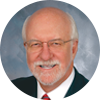Jim Parker was a master with acronyms; his acronym for FEAR was False Evidence Appearing Real. Sometimes we become so paralyzed by our fears that we forget the antidote, which is action.
One of the biggest problems I have seen in the chiropractic profession is what I call "chiropractic arrogance." It is not confined to only the young practitioners. Although, coming right out of school, they often fancy themselves a bit above everyone else; even superior to the seasoned field veterans who know something about running the business aspect of a practice. A new graduate, one without prior business experience, has very limited knowledge in this area.
The next problem that hinders a doctor's success is "passive aggression." Passive-aggressive personalities simply think they are smarter and certainly have better ideas than anyone trying to help them. Often, the passive-aggressive thinks if they drag their feet long enough and avoid the work, the boss will quickly forget their directives and they are off the hook.
I have seen really good practice-management experts fail to get a young doctor on their feet simply because of this "disease." By the way, there is no cure for this ailment unless, by some miracle, the doctor decides they might get ahead if they put into action what they have been taught and been asked to implement. These types talk a good game in meetings, are always apologizing and making excuses for why they are not following orders, and are usually a very sociable type of people. Most likely, they will only achieve success if they have a very significant life-changing experience. If not, they might prosper for a short time, only to fall back into their former way of operating. This is one of the most exasperating types of people with whom to work.
I would much rather mentor an enthusiastic young practitioner who is willing to make a plan, follow the plan and not be afraid to make a few mistakes along the way. The most frustrating type of individual is the associate who continues to do again and again what you have told them not to do.
Finally during my many years in this profession, I have observed that most chiropractors are not really givers, especially in their local community. I believe the only practitioners who are really successful are totally involved in their local community. However, most chiropractors want to see immediate results from what they do. Working on a local charity or allowing the Red Cross to use their clinic as a blood-collection site never occurs to them as a practice-building effort.
Here in Phoenix, we have loaned the parking lot and waiting room of the Activator Health Center to the Red Cross for two years. Just recently, we received a plaque (which we proudly display in our waiting room) announcing that we have saved more than 500 lives. Consequently, over 1,000 donors now know where our clinic is located if they need our services.
The moral to this story is simple, but it's one all doctors of chiropractic should remember: You can't give without getting involved!
Click here for previous articles by Arlan Fuhr, DC.





